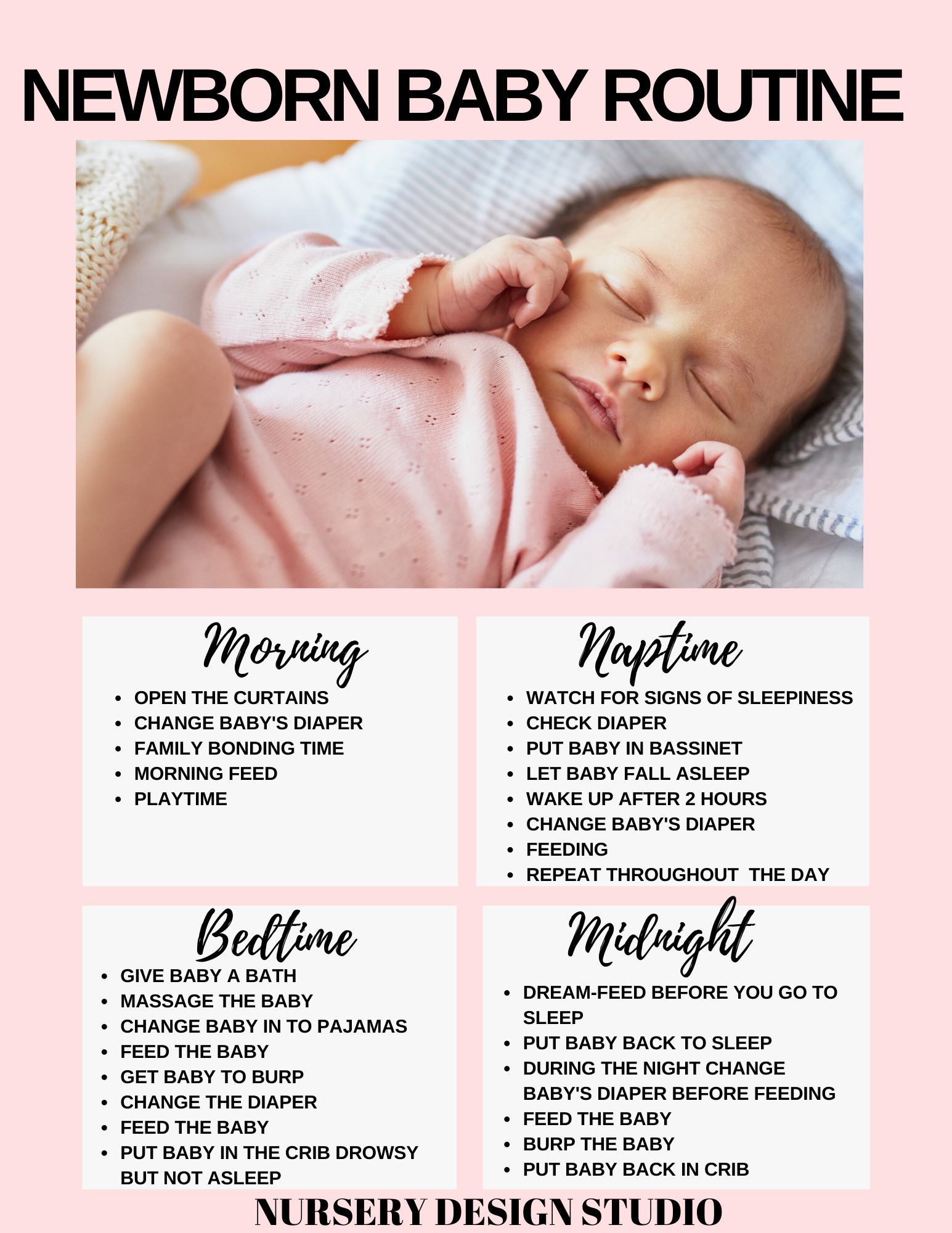 Source: bing.com
Source: bing.comAs a new parent, one of the most challenging aspects of caring for your baby is getting them to sleep. Lack of sleep can leave you feeling drained and irritable, which is why establishing a sleep routine is so important. But when do babies develop a sleep routine? In this article, we’ll explore the developmental stages that lead to a regular sleep pattern and provide some tips on how to make the process easier.
Table of Contents
Birth to 3 Months
During the first few months of your baby’s life, they will sleep for most of the day and night, waking up only to feed. There is no set schedule for sleep at this stage, and it can be challenging to distinguish between day and night. However, you can start to establish a routine by setting a consistent bedtime and creating a calming environment for sleep. This might include dimming the lights, playing soft music, and using a swaddle or white noise machine to help your baby feel secure.
3 to 6 Months
Around the three-month mark, your baby will start to develop a more regular sleep pattern, with longer stretches at night and shorter naps during the day. At this stage, it’s important to establish a consistent bedtime and wake-up time to help regulate your baby’s internal clock. You can also start to introduce a bedtime routine, such as a warm bath, a lullaby, and a story. This will help your baby associate these activities with sleep and get them ready for bed.
6 to 12 Months
Between six and twelve months, your baby will continue to consolidate their sleep into longer nighttime stretches and fewer naps during the day. They may also start to resist naps or wake up earlier in the morning, which can be a sign that they are ready to transition to one nap a day. To make this transition easier, try to establish a consistent nap schedule and gradually extend the length of the awake time between naps.
12 Months and Beyond
By the time your baby reaches one year old, they should be sleeping through the night and taking one or two naps during the day. However, every child is unique, and some may still struggle with sleep issues. If your child is having trouble sleeping, it’s essential to address the issue as soon as possible to avoid long-term sleep problems. You might consider seeking advice from a pediatrician or sleep specialist to help you develop a plan that works for your family.
Tips for Establishing a Sleep Routine
Establishing a sleep routine can take time and patience, but there are several things you can do to make the process easier. Here are some tips to help you get started:
- Set a consistent bedtime and wake-up time.
- Create a calming environment for sleep.
- Develop a soothing bedtime routine.
- Be responsive to your baby’s needs, but avoid creating sleep associations that are difficult to maintain.
- Encourage healthy sleep habits, such as avoiding screen time before bed and creating a dark, quiet environment for sleep.
Frequently Asked Questions
Q: When should I start establishing a sleep routine for my baby?
A: It’s never too early to start establishing a sleep routine for your baby. Even in the first few weeks of life, you can begin to create a calming environment for sleep and set a consistent bedtime. However, it’s important to remember that every baby is different, and it may take some time to find a routine that works for your family.
Q: How can I tell when my baby is ready to transition to one nap a day?
A: Every baby is different, but most babies are ready to transition to one nap a day between 12 and 18 months. Signs that your baby is ready for this transition include resisting naps or waking up earlier in the morning. To make the transition easier, try to establish a consistent nap schedule and gradually extend the length of the awake time between naps.
Q: What should I do if my baby is having trouble sleeping?
A: If your baby is having trouble sleeping, it’s essential to address the issue as soon as possible to avoid long-term sleep problems. You might consider seeking advice from a pediatrician or sleep specialist to help you develop a plan that works for your family.
Q: How much sleep does my baby need?
A: The amount of sleep your baby needs depends on their age. Newborns typically sleep for 16-17 hours a day, while infants between 3 and 11 months need 12-14 hours of sleep. Toddlers between 1 and 2 years old need 11-14 hours of sleep, and children between 3 and 5 years old need 10-13 hours of sleep.
Q: What can I do to help my baby stay asleep through the night?
A: There are several things you can do to help your baby stay asleep through the night, including establishing a consistent bedtime and wake-up time, creating a calming environment for sleep, and developing a soothing bedtime routine. You might also consider using a white noise machine, a swaddle, or a pacifier to help your baby feel secure and comfortable.
In conclusion, establishing a sleep routine for your baby is an essential part of their development and your well-being as a parent. By understanding the developmental stages that lead to a regular sleep pattern and following some simple tips, you can help your baby get the sleep they need to grow and thrive.
